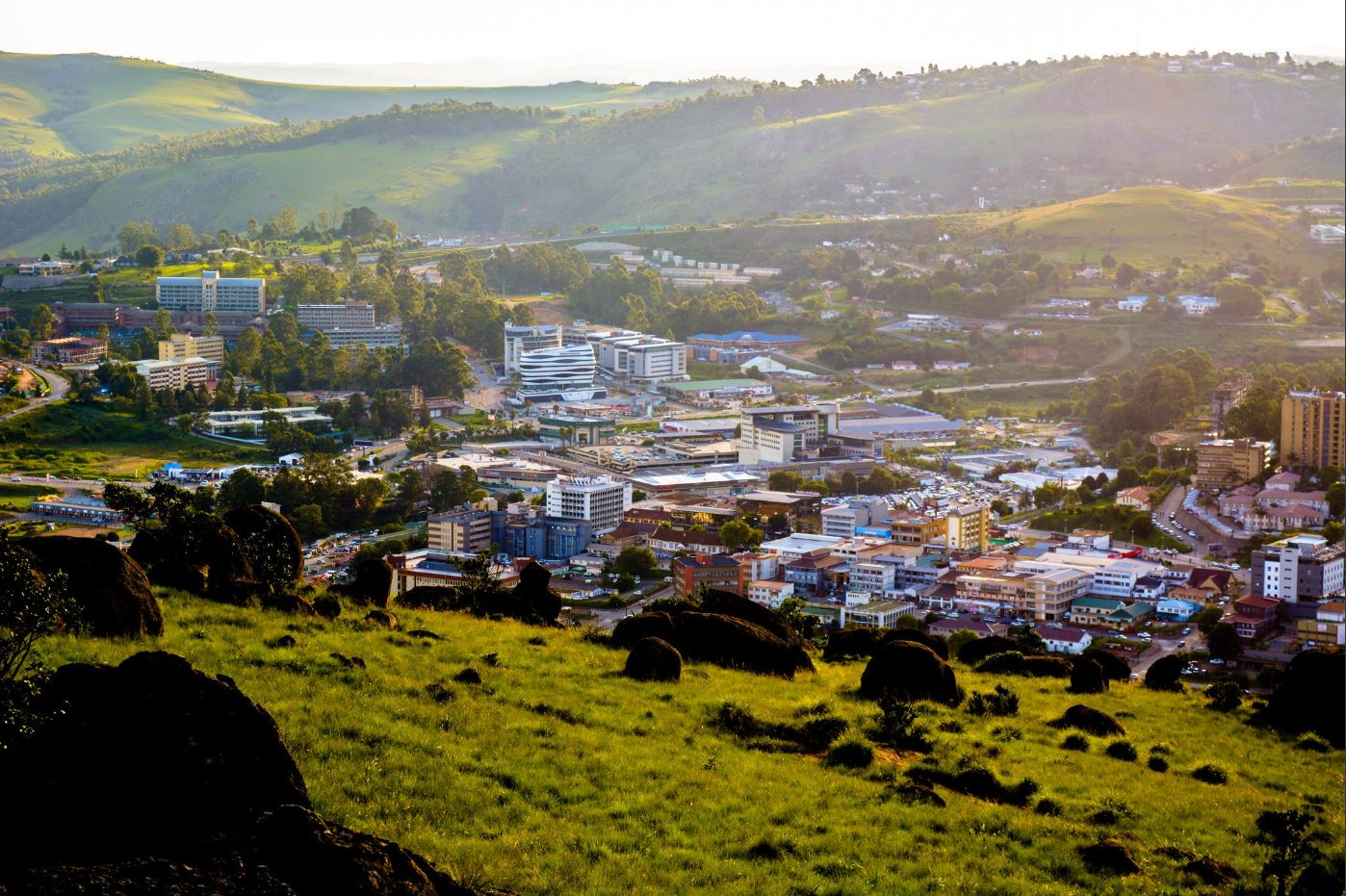Eswatini, formerly known as Swaziland, is a captivating landlocked kingdom located in Southern Africa. Known for its rich cultural heritage, stunning landscapes, and vibrant traditions, Eswatini offers a unique experience for travelers seeking to immerse themselves in the beauty of African culture and history. From the majestic mountains to the lush valleys, Eswatini is a land of contrasts that promises adventure and enchantment at every turn.
Table of Contents
Geography
Eswatini is a small country bordered by South Africa to the west, south, and southeast, and Mozambique to the northeast. Covering an area of approximately 17,364 square kilometers, Eswatini features a diverse landscape that includes mountainous regions, rolling hills, and fertile valleys. The country is divided into four geographic regions: the Highveld, the Middleveld, the Lowveld, and the Lubombo Plateau.
The Highveld, located in the western part of the country, is characterized by its elevated terrain and cooler climate. It is home to the capital city, Mbabane, which is situated in a valley surrounded by mountains. The Middleveld, with its rich agricultural land, is known for its fertile soil and is often referred to as the breadbasket of Eswatini. The Lowveld, in the southeast, is a hot and arid region, while the Lubombo Plateau boasts stunning views and diverse wildlife.
The country is crisscrossed by numerous rivers, including the Great Usuthu River, which flows through the Lowveld. Eswatini’s natural beauty is complemented by its wildlife reserves and national parks, providing ample opportunities for outdoor adventures, such as hiking, birdwatching, and game viewing.
States of Eswatini
Eswatini, formerly known as Swaziland, is divided into four administrative regions, rather than states. These regions are:
| No. | Region | Capital |
|---|---|---|
| 1 | Hhohho | Mbabane |
| 2 | Lubombo | Siteki |
| 3 | Manzini | Manzini |
| 4 | Shiselweni | Nhlangano |
History
Eswatini’s history is rich and complex, shaped by its indigenous people, colonial influences, and the struggle for independence. The Swazi people have inhabited the region for centuries, establishing a strong cultural identity and a system of governance led by a king, or “inkhosi.” The kingdom was officially founded in the 18th century by King Ngwane III, who united various clans and established a centralized authority.
In the late 19th century, Eswatini became a target for British colonial interests, leading to conflicts with neighboring Boer settlers and the British. In 1903, Eswatini was placed under British protection, which significantly impacted its political landscape and cultural identity. Despite the colonial rule, the Swazi people maintained their customs and traditions, preserving their rich heritage.
Eswatini gained independence from British colonial rule on September 6, 1968, and has since maintained a monarchy. King Sobhuza II, who ruled from 1921 until his death in 1982, played a crucial role in solidifying the country’s identity and promoting traditional customs. The current king, Mswati III, has been in power since 1986 and continues to uphold the monarchy while navigating modern challenges.
Top Ten Must-Visit Destinations
1. Mbabane
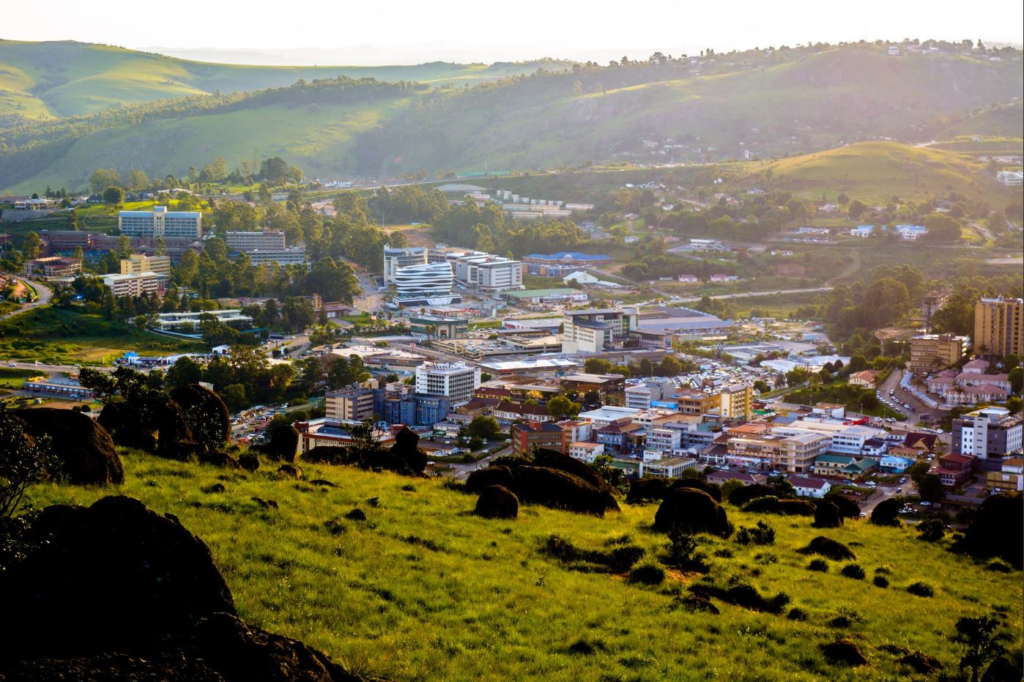
Mbabane, the capital city, is nestled in a valley surrounded by mountains. The city is known for its vibrant markets, cultural sites, and stunning views. Visitors can explore the Mbabane Market for local crafts and fresh produce or visit the Swaziland National Museum to learn about the country’s rich heritage. The city also serves as a gateway to nearby attractions, including beautiful hiking trails and scenic landscapes.
2. Hlane Royal National Park

Hlane Royal National Park is one of Eswatini’s largest protected areas, known for its diverse wildlife and lush landscapes. The park is home to elephants, lions, and rhinos, making it a popular destination for game drives and guided walking safaris. Visitors can explore the park’s rich biodiversity while enjoying the tranquility of the African wilderness.
3. Mlilwane Wildlife Sanctuary

Mlilwane Wildlife Sanctuary is a must-visit destination for nature enthusiasts and adventure seekers. The sanctuary offers a range of outdoor activities, including hiking, mountain biking, and horseback riding. Visitors can observe a variety of wildlife, including zebras, antelopes, and numerous bird species while enjoying the stunning scenery of the surrounding mountains and valleys.
4. Swazi Cultural Village
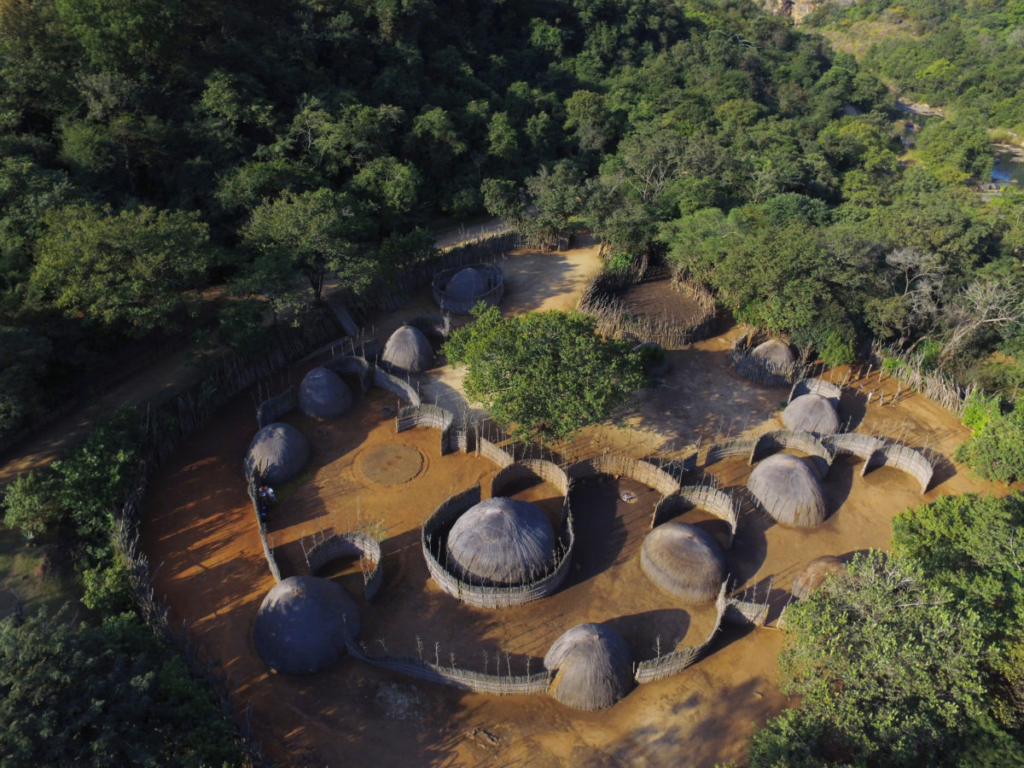
The Swazi Cultural Village provides an immersive experience into the traditional way of life in Eswatini. Visitors can explore traditional huts, participate in cultural activities, and learn about the Swazi customs and traditions. The village often hosts cultural performances, showcasing traditional music, dance, and craftsmanship.
5. Lobamba
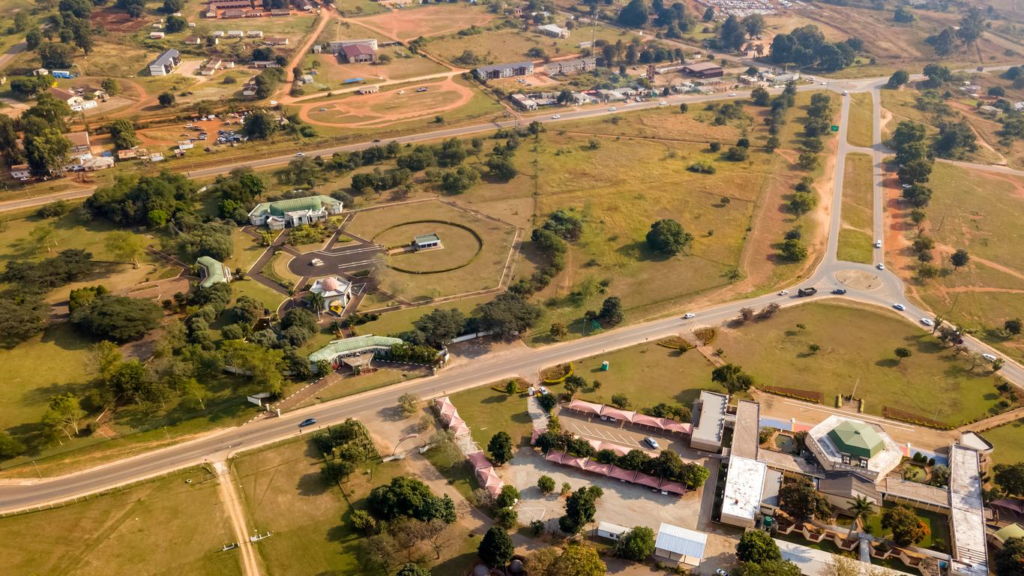
Lobamba is a historic town and the traditional capital of Eswatini, home to the royal family and significant cultural sites. Visitors can explore the impressive Parliament building and the King Sobhuza II Memorial Park, dedicated to the late king. The town is also known for its vibrant markets and cultural events, making it a great place to experience local life.
6. Mantenga Cultural Village
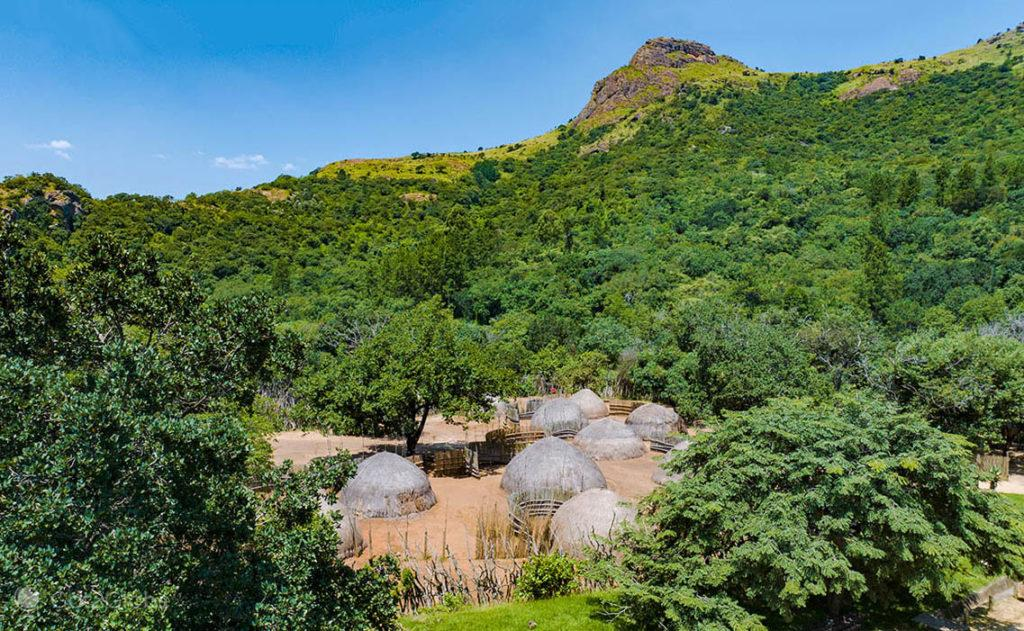
Mantenga Cultural Village offers a glimpse into the traditional Swazi lifestyle through authentic displays of culture and heritage. Visitors can enjoy traditional dances, storytelling, and crafts while exploring the village. The nearby Mantenga Falls provides a stunning backdrop for relaxation and photography.
7. Ngwenya Glass Factory

The Ngwenya Glass Factory is a unique attraction where visitors can witness skilled artisans creating beautiful glassware from recycled materials. The factory offers guided tours, showcasing the glass-making process and allowing visitors to purchase unique souvenirs. The factory’s commitment to sustainability and artistry makes it a fascinating stop.
8. Bulembu
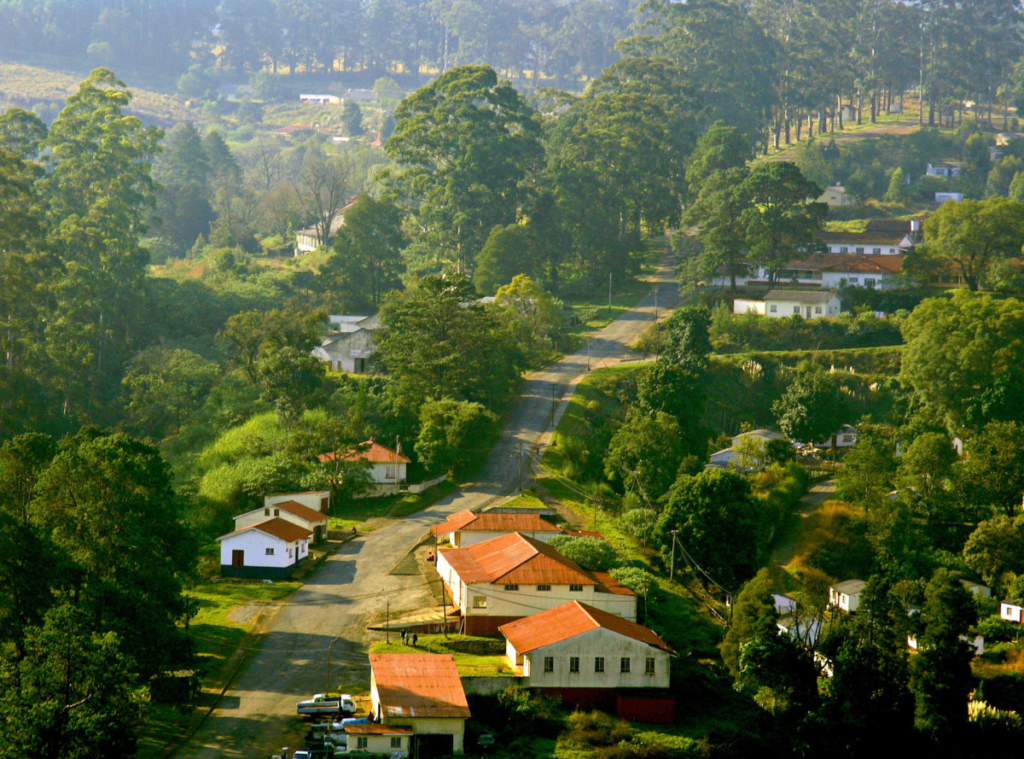
Bulembu is a small town located near the border with South Africa, known for its scenic beauty and outdoor activities. The town is surrounded by lush mountains and offers hiking trails, waterfalls, and panoramic views. Visitors can explore the nearby Bulembu Nature Reserve, which is home to diverse wildlife and stunning landscapes.
9. Piggs Peak
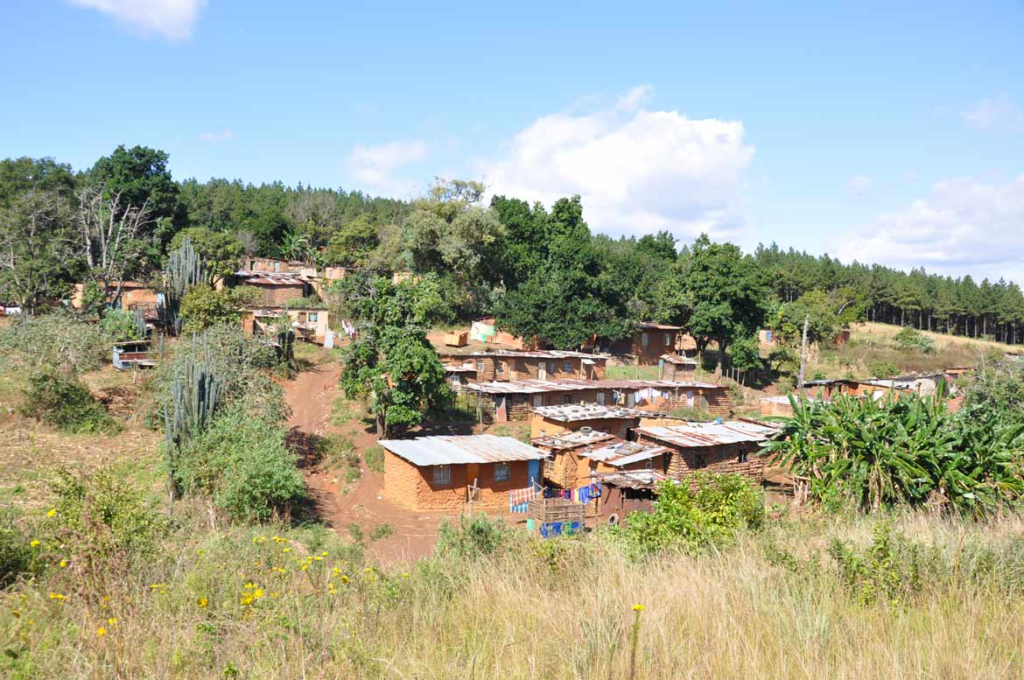
Piggs Peak is a charming town located in the northwestern part of Eswatini, known for its stunning mountain scenery and rich mining history. Visitors can explore the beautiful landscapes, hike the surrounding trails, and visit local art galleries showcasing traditional Swazi craftsmanship. The town is also a great base for exploring the nearby mountains.
10. Shewula Mountain Camp

Shewula Mountain Camp is an eco-friendly accommodation option situated on a hillside, offering breathtaking views of the surrounding landscapes. The camp provides opportunities for hiking, birdwatching, and cultural experiences with local communities. Visitors can immerse themselves in the beauty of nature while supporting sustainable tourism initiatives.
Culture
Eswatini’s culture is vibrant and deeply rooted in tradition, reflecting the values and beliefs of the Swazi people. The Swazi language, siSwati, is widely spoken alongside English, which is used in government and education. The country’s rich oral traditions are passed down through generations, with storytelling and music playing a vital role in preserving history and culture.
Traditional customs and rituals are central to Swazi culture, with ceremonies often held to celebrate significant life events, such as weddings and coming-of-age celebrations. The Umhlanga Reed Dance is one of the most famous cultural events, where young women gather to participate in a celebration of chastity and cultural pride. The festival features colorful traditional attire, singing, and dancing, drawing visitors from near and far.
The Swazi people are known for their skilled craftsmanship, producing intricate beadwork, wooden carvings, and traditional textiles. Local markets are vibrant hubs where artisans showcase their creations, offering visitors the chance to purchase unique souvenirs and support local livelihoods. The cultural heritage of Eswatini is celebrated through various art forms, including music, dance, and visual arts.
Festivals
Eswatini hosts a variety of festivals that celebrate its rich cultural heritage and traditions. One of the most prominent festivals is the Umhlanga Reed Dance, held annually in August or September. This vibrant event involves thousands of young women gathering to cut reeds and present them to the queen mother as a symbol of respect and purity. The festival features traditional dances, music, and colorful attire, attracting both locals and tourists.
Another important festival is Incwala, the Festival of the First Fruits, celebrated in December and January. This sacred ceremony marks the beginning of the harvest season and involves rituals, dancing, and feasting. The king plays a central role in the festivities, symbolizing unity and the connection between the people and their land.
Easter and Christmas are also celebrated in Eswatini, with religious ceremonies and family gatherings. The country’s cultural festivals reflect the importance of community, tradition, and the celebration of life.
Economy
Eswatini’s economy is primarily based on agriculture, manufacturing, and services. Agriculture plays a crucial role, employing a significant portion of the population and contributing to food security. Key crops include sugarcane, maize, and fruits, with sugar production being one of the country’s major exports.
The manufacturing sector has been growing, with industries such as textiles, food processing, and beverages contributing to economic development. Eswatini also has a thriving tourism industry, with visitors drawn to its natural beauty, cultural heritage, and wildlife reserves.
Remittances from the Swazi diaspora, particularly in South Africa, also play a vital role in the economy, supporting local households and businesses. Despite challenges such as unemployment and economic inequalities, Eswatini is working towards diversifying its economy and promoting sustainable development.
Cuisine
Eswatini’s cuisine is a delightful blend of flavors, influenced by local traditions and ingredients. The staple food is pap (a thick porridge made from maize), often served with various stews and sauces. Sishwala, a traditional dish made from maize and beans, is a popular choice, reflecting the agricultural heritage of the country.
Emasi, a fermented milk product, is commonly consumed and often enjoyed with baked beans or samp (crushed maize). Meat, particularly chicken, beef, and goat, plays a significant role in the cuisine, with grilled dishes and stews being popular among locals. Traditional celebrations often feature elaborate meals, showcasing the rich culinary traditions of Eswatini.
Top Eight Most Famous Food








Interesting Facts
- Eswatini is one of the last absolute monarchies in Africa.
- The country was formerly known as Swaziland until it was officially renamed Eswatini in 2018.
- The Umhlanga Reed Dance is one of the largest cultural events in Southern Africa.
- Eswatini has a high rate of HIV/AIDS prevalence, prompting extensive health initiatives.
- The Swazi people have a strong tradition of oral storytelling and folklore.
- The country is home to several wildlife reserves, including Hlane and Mlilwane.
- The Swazi national flag features a black and white shield, symbolizing the people’s protection.
- Eswatini is known for its intricate beadwork and traditional crafts.
- The capital city, Mbabane, is situated at an elevation of 1,250 meters above sea level.
- The Swazi people celebrate the harvest season with the Incwala festival.
Conclusion
Eswatini is a hidden gem in Southern Africa, offering a captivating blend of culture, history, and natural beauty. From its stunning landscapes and diverse wildlife to its rich traditions and vibrant festivals, the kingdom provides travelers with unforgettable experiences. As visitors explore the enchanting land of Eswatini, they will discover a welcoming people, a rich cultural heritage, and the spirit of a nation that proudly celebrates its identity and traditions.

